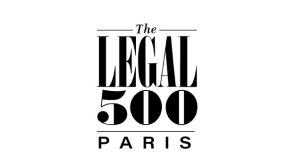The European Union is currently engaged in general discussions on the adoption of new competitive tools better adapted to the digitization and globalization of society. Adopting a holistic and comprehensive approach, the Commission has identified three pillars:
- the rigorous application of the provisions of Articles 101 and 102 TFEU;
- ex ante regulation of digital platforms;
- a new competition tool designed to resolve structural competition problems that cannot be dealt with effectively by the rules in force.
The second pillar is the subject of a specific treatment since the Commission wishes to adopt a Digital Services Act Package by the end of the year to address issues such as the market power of digital platforms. With this in mind, the Commission launched a public consultation on 2 June 2020, which focuses on two areas:
- defining a liability regime for online intermediaries and governance for the digital services markets;
- adopting ex ante rules to address imbalances in this market, including the creation of “gatekeepers” roles for the major platforms which now set the rules of the game for their competitors and for users.
The Commission aims, in this way, to restore fair competition in the digital products and services market where GAFA can be challenged by existing and future competitors so that consumers have the widest choice and the Single Market remains competitive. At present, their self-regulatory approach and the high barriers to entry resulting from their market power are detrimental to competition, consumers and to innovation.
The competition authorities within the European Union and the United States have notably criticized Facebook’s monopoly power in social media, Google’s anticompetitive tactics to maintain its general search engine monopoly, Amazon’s anticompetitive behavior in its treatment of third party vendors present on its platform, and the barriers to entry that Apple erects thanks to its control over the iOS and the App Store, which had led it to discriminate against and exclude its competitors. The GAFA have been the subject of numerous judgments from national and European authorities. The product and customer allocation practices implemented by Apple and its wholesalers were held to be anticompetitive by object by the French Competition Authority (Decision No 20-D-04, 16 March 2020, LawLex20200000542JBJ). Google was fined EUR 150 million for having defined in a non-objective and non-transparent manner the contractual rules for the operation of its Google Ads service and having imposed them on advertisers under random, unfair and discriminatory conditions (Competition Authority, decision No 9-D-26 of 19 December 2019, LawLex202000000132JBJ). The Commission, for its part, sanctioned Google for promoting its search application Google Search and its browser Google Chrome (EU Commission Decision No AT.40009 of 18 July 18, 2018, Google Android). However, these at times harsh fines would appear to be inadequate in stopping the anticompetitive practices of these undertakings and for that reason the EU is seeking to adopt a more restrictive mechanism.
The new rules are designed to require GAFAs to share their data with their competitors, require them to provide for the uninstallation of their applications on smartphones, and prohibit them from pre-installing these applications. The digital giants would no longer be able to prevent competitors from offering their products outside their platforms or showcasing their own group’s products in search results or automatically imposed online stores such as the App Store or Google Play. On 20 October 2020, the European Parliament declared itself in favor of strict regulation and called on the Commission to take a firm stance in its plans for a new regulation to replace the e-commerce directive of 8 June 2000.
For its part, the French Competition Authority has suggested that new provisions specific to “structuring digital platforms” be introduced into national and European competition law. Starting from the premise that such platforms first be identified in order to appreciate their behavior, the Authority proposes a general definition of the concept of “structuring digital platform” in three stages, which could then be framed by guidelines. The following would fall under this criterion: “1) an undertaking that provides online intermediation services, with a view to exchanging, buying or selling goods, content or services, and 2) that holds “structuring” market power a) because of its size, financial capacity, user community and/or the data it holds, b) allowing it to control access or significantly affect the operation of the market(s) in which it operates, 3) with regard to its competitors, users and/or third-party undertakings which depend on access to the services it offers for their economic activity”. A list of practices that raise competition concerns which should not be automatically prohibited but assessed on a case-by-case basis, will be defined, such as for example discriminating against competing products or services using their service, hindering access to markets in which they are not dominant or structuring, using data in a dominated market to make access more difficult, making the interoperability of products or services or the portability of data more difficult, or preventing the use of multi-homing.
Europe is not alone in being concerned about the excessive power of the GAFA undertakings. In the US, a report presented to Congress calls for a reform of antitrust laws to put an end to the “murderous acquisitions” and “digital monopolies” of the web giants. In particular, the report suggests a dismantling that would lead Facebook to separate from Instagram and WhatsApp, and Google from YouTube… While the American proposals may seem more radical than those of the Union, the latter, by obliging them to share their data, seems to go further, since access to data is an essential element of market power and of the value of an undertaking.

 MY ACCOUNT
MY ACCOUNT













